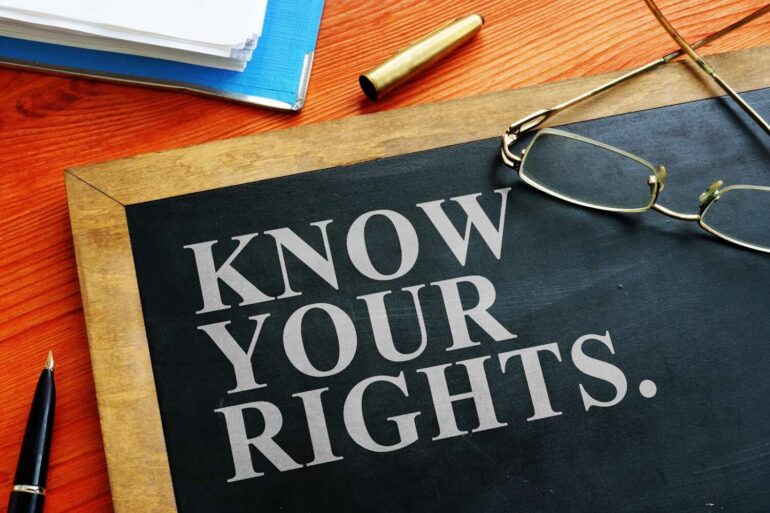Navigating the complexities of workplace dynamics can be challenging, and sometimes, despite your best efforts, issues arise that require formal attention. Filing a complaint with your Human Resources (HR) department is often the first step towards resolving these problems. However, ensuring that HR takes your complaint seriously and acts upon it can be daunting. This guide will walk you through the process of filing a complaint effectively, helping you understand your rights, and providing tips to make HR listen and respond appropriately.
If you find yourself needing legal advice, consulting a Princeton NJ employment law attorney can provide the guidance and support you need.
Understanding Your Rights

Before filing a complaint, it’s crucial to understand your rights as an employee. These rights are protected by various federal and state laws designed to ensure fair treatment in the workplace. For instance, the Equal Employment Opportunity Commission (EEOC) enforces laws against workplace discrimination, while the Occupational Safety and Health Administration (OSHA) ensures safe working conditions. Familiarize yourself with these laws to know what constitutes a legitimate complaint and the protections you are entitled to.
Identifying the Issue
The first step in filing an effective complaint is clearly identifying the issue. Whether it’s harassment, discrimination, unsafe working conditions, or unfair treatment, having a detailed understanding of the problem is essential. Documenting specific incidents, including dates, times, locations, and any witnesses, will strengthen your case. This documentation serves as evidence and helps HR understand the gravity of the situation.
Preparing Your Complaint
Once you have identified and documented the issue, the next step is to prepare your complaint. A well-structured complaint should include a clear and concise description of the problem, supported by the documented evidence. Explain how the issue has affected you and your work, and mention any steps you have already taken to resolve the matter informally. Be sure to express your expectations and desired outcome, whether it’s an investigation, mediation, or specific corrective action.
Filing the Complaint

When filing your complaint, follow your company’s official procedure. This typically involves submitting a written complaint to the HR department. Ensure that your complaint is addressed to the appropriate person or team, and request a confirmation of receipt. Keep a copy of your complaint and any related correspondence for your records. If your company has an anonymous reporting system, you may choose to use it, but be aware that anonymous complaints can sometimes be harder to investigate.
Following Up
After filing your complaint, it’s important to follow up with HR to ensure that your issue is being addressed. Ask for a timeline of the investigation process and any interim measures that will be taken to protect you. Regular follow-ups demonstrate that you are serious about your complaint and help keep the process on track. If HR is unresponsive or you feel the investigation is not being handled properly, consider escalating the matter to higher management or seeking external assistance.
Escalating the Issue
If your complaint is not resolved satisfactorily within your organization, you may need to escalate the issue. This could involve contacting external agencies such as the EEOC or OSHA, or seeking legal advice. An experienced attorney can guide you through the process of filing a formal complaint with these agencies and help you understand your options for legal recourse.
Ensuring Retaliation Protection
One of the major concerns when filing a complaint is the fear of retaliation. Retaliation can take many forms, from subtle changes in job duties to outright termination. It’s important to know that retaliation is illegal, and you are protected under various laws. If you experience any form of retaliation, document it and report it to HR or the appropriate authorities immediately. Legal assistance can also be sought to address and prevent further retaliatory actions.
Seeking Mediation or Arbitration

In some cases, mediation or arbitration can be effective ways to resolve workplace disputes. Mediation involves a neutral third party helping both sides reach a mutually agreeable solution, while arbitration involves a binding decision from an arbitrator. These methods can be less adversarial and more cost-effective than formal legal proceedings. Discuss these options with HR or your attorney to determine if they are suitable for your situation.
Understanding the Investigation Process
Understanding how HR investigations work can help you navigate the process more effectively. Typically, an HR investigation will involve interviews with the complainant, the accused, and any witnesses. HR will review relevant documents and evidence, and may consult with legal or external experts. The length and thoroughness of the investigation can vary, but it’s important to stay informed and cooperative throughout the process.
Maintaining Professionalism
Throughout the complaint process, maintaining professionalism is crucial. While it’s natural to feel emotional about your situation, approaching the process calmly and rationally will make it easier for HR to address your concerns seriously. Avoid engaging in workplace gossip or retaliating against the accused, as this can undermine your complaint and potentially complicate the investigation.
Knowing When to Seek Legal Action

If all internal efforts fail to resolve your complaint, it may be time to consider legal action. This can be a daunting step, but knowing when and how to seek legal help is crucial. A knowledgeable attorney can assess the merits of your case, help gather additional evidence, and represent you in negotiations or court proceedings.
Conclusion
Filing a complaint with HR is a significant step towards addressing workplace issues, but ensuring that HR listens and takes appropriate action requires careful preparation and persistence. By understanding your rights, documenting your issue, and following the proper procedures, you can make a strong case that HR cannot ignore. If internal measures fail, don’t hesitate to seek external assistance or legal advice to protect your rights and achieve a fair resolution.
Remember, you are entitled to a safe and fair working environment, and taking the necessary steps to address any violations is crucial. Whether it’s through internal resolution or legal action, your efforts can lead to positive changes not only for yourself but also for your workplace as a whole.
